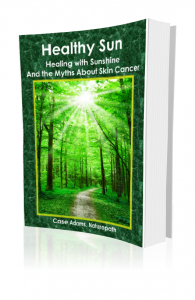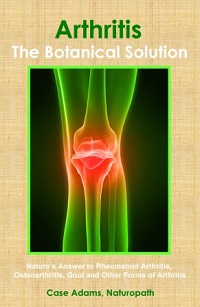Vitamin D Deficiency Linked to Cognitive Decline in Elderly
Research from the Wake Forest School of Medicine has found that lower levels of vitamin D in the blood is associated with increased cognitive decline.
The researchers tested and followed 2,777 men and women between 70 and 79 years old for four years.
They measured their blood vitamin D levels – 25-hydroxyvitamin D – 25(OH)D – and tested their cognition levels using the modified Mini-Mental State Examination (3MS) and the Digit Symbol Substitution Test (DSST). Cognitive testing was given at the beginning of the study and at the end of four years, while the vitamin D testing took place
Those men and women with blood levels of vitamin D below 20 ng/mL scored an average of 89.9 on their 3MS test and 35.2 on the DSST test, while those with vitamin D levels above 30 ng/mL scored 90.6 and 37 for those two tests – a significant difference.
Furthermore, those with lower vitamin D levels in their blood had significantly more cognitive decline over the four years. Those with vitamin D levels under 20 ng/mL declined an average of 1.0 point on the 3MS test and those who had vitamin D levels over 30 ng/mL declined by only 0.2 points.
This means the rate of cognitive decline of those with lower blood vitamin D levels was five times the rate of decline among those with higher vitamin D levels.
In this article
Vitamin D studied in the UK
Research from the UK’s University of Manchester tested an even larger population, 3,369 men from Europe who were between 40 and 79 years old. The researchers also utilized the DSST test here as well as the Camden Topographical Recognition Memory (CTRM) test to assess the cognition of the volunteers.
This study found that there was a linear relation between cognition and vitamin D status – the less vitamin D in the blood, the lower the cognitive scores were. Furthermore, they found that cognitive scores were significantly lower among those with blood 25(OH)D levels less than 35 nmol/l – equivalent to about 10 ng/mL.
Is 30 ng/mL a healthy vitamin D status?
One might come to this conclusion from the research. But the reality is that 40-50 ng/mL is considered a healthy level of 259(OH)D in the bloodstream.
And as confirmed in this study, most of the elderly – and likely most of everyone else – frankly, are deficient in vitamin D – as the research found that 65% of the population tested had levels below 30 ng/mL. Other studies of elderly people have shown similar rates.
So I can just take a vitamin D supplement right?
This question remains to be answered, but if we examine some of the recent research we find that oddly enough, supplementation with vitamin D does not, in most cases, reverse or prevent those diseases associated with vitamin D.
And specifically regarding cognition, this large review of research found vitamin D supplementation does not appear to reduce cognitive decline.
The sun may provide the answer
The answer to why is this the case has not been confirmed, but there is good scientific reason to believe that supplemented vitamin D does not have the same therapeutic ability that vitamin D derived from the skin’s exposure to UVB has.
This shows that the vitamin D from supplements is either 25(OH)D2 or 25(OH)D3, while the vitamin D produced from the sun is 24(OH)D3-sulfate – 25-Hydroxyvitamin D3-3-beta-sulphate to be exact. This more complex sulfate molecule is sequestered into fat cells, while the synthetic forms of vitamin D2 and vitamin D3 do not sequester as well – though supplemented D3 does sequester better than D2.
In other words, it is more therapeutic to get our vitamin D from the sun. Does this really surprise us? Sure, we were hoping that we could forget all about going outside and just sit at our computers and swallow some vitamin D pills and we’d fine. But unfortunately, our bodies were designed to be outdoors – at least periodically – in the sun.

Learn the benefits of the sun and how to help prevent skin cancer while supporting this ad-free website.
REFERENCES:
Wilson VK, Houston DK, Kilpatrick L, Lovato J, Yaffe K, Cauley JA, Harris TB, Simonsick EM, Ayonayon HN, Kritchevsky SB, Sink KM; Health, Aging and Body Composition Study. Relationship between 25-hydroxyvitamin D and cognitive function in older adults: the Health, Aging and Body Composition Study. J Am Geriatr Soc. 2014 Apr;62(4):636-41. doi: 10.1111/jgs.12765.
Lee DM, Tajar A, Ulubaev A, Pendleton N, O’Neill TW, O’Connor DB, Bartfai G,Boonen S, Bouillon R, Casanueva FF, Finn JD, Forti G, Giwercman A, Han TS, Huhtaniemi IT, Kula K, Lean ME, Punab M, Silman AJ, Vanderschueren D, Wu FC; EMAS study group. Association between 25-hydroxyvitamin D levels and cognitive performance in middle-aged and older European men. J Neurol Neurosurg Psychiatry. 2009 Jul;80(7):722-9. doi: 10.1136/jnnp.2008.165720.


















